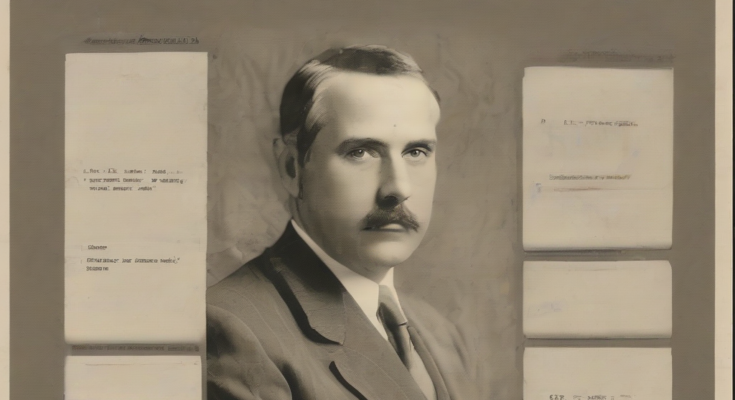Federal Defense Attorneys: Guardians of Constitutional Rights in the U.S. Justice System
Federal defense attorneys play a crucial role in upholding the principles of justice and fairness within the American legal system. They are the legal representatives for individuals accused of violating federal laws, ensuring that their clients’ constitutional rights are protected throughout the complex process of federal criminal prosecution. Their work goes beyond simply winning cases; it’s about safeguarding the very foundations of due process and ensuring a fair trial for everyone, regardless of their circumstances or the gravity of the charges against them.
The Scope of Federal Criminal Defense
The breadth of federal criminal law is extensive, encompassing a wide array of offenses, including:
- Drug trafficking and related crimes
- White-collar crimes such as fraud, embezzlement, and insider trading
- Violent crimes like assault, robbery, and weapons offenses committed on federal property or involving interstate commerce
- Immigration violations
- Cybercrimes
- Tax evasion
- Conspiracy and racketeering
- National security related offenses
Federal prosecutions often involve complex legal issues, substantial investigative resources, and significant penalties, making the role of a federal defense attorney particularly critical. The stakes are high, and the consequences of a conviction can be life-altering, including lengthy prison sentences, substantial fines, and a criminal record that can impact future opportunities.
Types of Federal Defense Attorneys
Federal criminal defendants have several options for legal representation:
- Public Defenders: Appointed by the court to represent indigent defendants who cannot afford legal counsel. These attorneys are employed by the federal government and are responsible for providing zealous representation to a large caseload.
- Assigned Counsel: Private attorneys appointed by the court to represent defendants who are deemed financially eligible for court-appointed representation but may not qualify for public defender services. These attorneys are compensated by the court for their services.
- Privately Retained Attorneys: Defendants who can afford legal counsel hire private attorneys specializing in federal criminal defense. These attorneys often have extensive experience in federal court and possess the resources to mount robust defenses.
The Responsibilities of a Federal Defense Attorney
The responsibilities of a federal defense attorney extend far beyond simply appearing in court. They are responsible for every stage of the legal process, including:
- Initial Consultation and Investigation: Meeting with the client to gather information about the charges, reviewing evidence, and beginning the investigative process to gather potential defenses.
- Negotiating with Prosecutors: Engaging in plea bargaining negotiations to attempt to secure a favorable outcome for the client. This often involves assessing the strengths and weaknesses of the prosecution’s case and exploring options for reduced charges or sentencing.
- Filing Motions and Legal Documents: Preparing and filing various motions with the court, such as motions to suppress evidence, motions to dismiss, and motions for discovery.
- Discovery: Obtaining and reviewing all evidence collected by the prosecution, including witness statements, police reports, forensic evidence, and electronic data. This is critical in building a strong defense strategy.
- Trial Preparation: Thoroughly preparing for trial, including interviewing witnesses, strategizing cross-examination techniques, and preparing opening and closing statements. This often requires extensive research and analysis of legal precedents.
- Trial Advocacy: Representing the client at trial, presenting evidence, cross-examining witnesses, and arguing legal points before the judge and/or jury. This demands strong advocacy skills and a deep understanding of courtroom procedure.
- Sentencing Advocacy: Following a conviction or guilty plea, arguing for a lenient sentence by presenting mitigating factors to the court.
- Appeals: If the client is convicted, preparing and filing an appeal if grounds exist to challenge the conviction or sentence.
Challenges Faced by Federal Defense Attorneys
Federal defense attorneys face numerous challenges in their work, including:
- Overburdened Caseloads: Public defenders, in particular, often face extremely heavy caseloads, limiting the amount of time they can dedicate to individual cases. This can impact the thoroughness of investigations and the quality of representation.
- Resource Disparities: Private attorneys often have access to greater resources, including expert witnesses, investigators, and advanced technology, creating an imbalance between defendants who can afford private counsel and those who rely on court-appointed representation.
- Complex Legal Issues: Federal criminal law is exceptionally intricate, requiring significant legal expertise and specialized knowledge to navigate effectively. This places a high demand on the skills and knowledge of defense attorneys.
- Powerful Prosecution: Federal prosecutors typically have extensive resources and experience, presenting a formidable adversary to even the most skilled defense attorneys.
- Ethical Considerations: Maintaining a strong ethical compass while zealously advocating for a client accused of a crime presents ongoing ethical dilemmas that demand careful consideration and adherence to strict professional standards.
The Importance of Effective Federal Defense
Effective federal defense is vital for preserving the integrity of the justice system. It ensures that individuals accused of crimes receive fair treatment, have their constitutional rights protected, and are not subjected to unfair or unjust prosecutions. The work of federal defense attorneys acts as a check on the power of the state, protecting individuals from potential abuses of authority and ensuring that the principles of due process are upheld.
Without skilled and dedicated federal defense attorneys, the system risks becoming unbalanced, potentially leading to wrongful convictions and the erosion of fundamental rights. Their tireless efforts to ensure fairness and justice are a cornerstone of a functioning democracy.
Furthermore, effective defense often leads to more efficient use of court resources. By ensuring that cases are properly investigated and that all defenses are adequately explored, defense attorneys contribute to a more just and equitable outcome, avoiding unnecessary trials and appeals that strain the already burdened judicial system.
The Future of Federal Defense
The landscape of federal criminal law is constantly evolving, with new technologies and challenges continually emerging. Federal defense attorneys must adapt to these changes by staying abreast of evolving legal precedents, technological advancements, and investigative techniques. This requires ongoing professional development, collaboration amongst colleagues, and a commitment to continuous learning.
Continued investment in resources for public defenders and assigned counsel is crucial to ensure equal access to justice for all defendants, regardless of their ability to pay. Addressing the issue of resource disparities is essential to maintaining the integrity and fairness of the federal justice system.
Ultimately, the role of the federal defense attorney remains vital in safeguarding individual liberties and ensuring the fair administration of justice in the United States. They stand as guardians of constitutional rights, ensuring that the process is just and that everyone, regardless of the charges they face, has a fighting chance to have their voice heard and their rights protected within the legal system.



